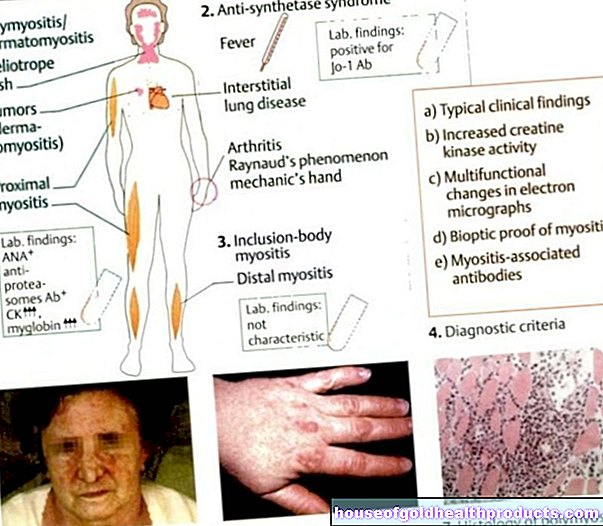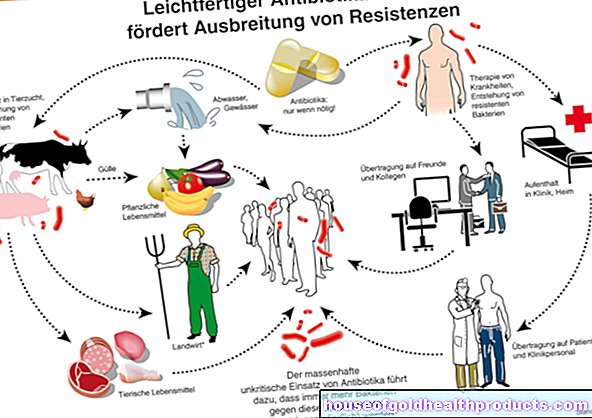Targeted corona infection for research?
Hanna Helder studied German language and literature at the Albert Ludwig University in Freiburg. In addition to her studies, she has gained a lot of experience in radio and print journalism through internships and freelance work. She has been at the Burda School of Journalism since October 2018 and writes, among other things, as a trainee for
More about the experts All content is checked by medical journalists.An international team of researchers has spoken out in favor of preparing studies with voluntarily infected test subjects when developing a vaccine against the coronavirus. Such considerations are still of a theoretical nature. Could it become a reality?
A group of volunteers is infected with a potentially deadly virus in order to be able to protect mankind from it more quickly: What may sound like something out of a science fiction film is actually what the initiators of the "1Day Sooner" campaign have in mind.
The team led by the US doctoral student Chris Bakerlee from Harvard University is looking for people who would be potentially willing to contract Covid-19 in order to accelerate the development of a vaccine. More than 14,000 people from over 100 countries have already registered.
Difference from previous studies
Clinical trials to develop a vaccine consist of several phases. First of all, the active ingredient is tested for compatibility, among other things, and then later for its effectiveness. For this purpose, some test subjects are given the active ingredient, a second group receives a placebo or standard therapy. Typically, one then waits until enough test persons have become infected with the respective pathogen on their own in order to be able to evaluate the effectiveness of the vaccine candidate.
The problem: If a pathogen is not particularly widespread, tens of thousands of study participants may be necessary. In addition, this test phase can then take a very long time. This is where the idea of "1Day Sooner" comes in: A targeted infection of voluntary test persons with the coronavirus could accelerate the corresponding test phase, argue the initiators.
Controversial approach
But such "Human Challenge Trials" - that is the English-language technical term - are controversial among scientists. Some stress the great benefit such studies could have for an entire society. Others express ethical concerns and point to the enormous health risks that infection with a pathogen such as Sars-CoV-2 that is still unexplored in many respects could have.
"In view of the special circumstances of the pandemic, our framework model and our analysis are in favor of laying a basis for Sars-CoV-2 challenges," writes a team led by first author Seema Shah from Northwestern University in Chicago in the journal Science. However, the authors also emphasize that risks for study participants, staff and third parties must be minimized.
The initiators of "1Day Sooner" refer to "Human Challenge Trials" in the past on their homepage. For example, in the 1970s, test subjects in the USA were specifically infected with cholera in order to test the effectiveness of a vaccine candidate. In various studies, volunteers were also given malaria pathogens.
"Challenge study would be an absolute exception"
In Germany, there have never been comparable studies with voluntarily infected people in this form, says medical historian Norbert Paul from the Mainz University Medical Center. But would they be conceivable in the current corona crisis? In theory, yes - both the Paul Ehrlich Institute (PEI) and an ethics committee would then have to approve. However, PEI President Klaus Cichutek recently stated: "There is a certain technical discussion about so-called Human Challenge Trials. We can perhaps deal with that again later. But that is not the trend."
"Such a challenge study would be an absolute exception," emphasizes Joerg Hasford, chairman of the working group for medical ethics commissions in Germany, with reference to the German canon of values. "Because, after the experience of the Third Reich, we have very, very high ethical and legal standards in Germany." The National Socialists carried out cruel medical experiments on prisoners in concentration camps.
Future music
A "Human Challenge Trial" to test a corona vaccine is a dream of the future anyway. Only a small proportion of the more than 100 vaccine projects currently running around the world are being tested in clinical trials with volunteers. Assuming you wanted to plan a "Human Challenge Trial" in Germany, according to Hasford, that would require some lead time: "Less than six months is certainly not realistic." (hh / dpa)
Tags: hospital dental care gpp





























